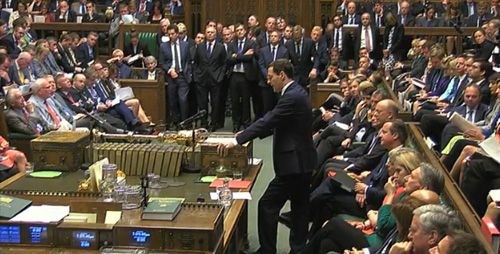

Levels of affordable house-building are expected to be cut substantially as a result of one of the new housing policies outlined in George Osbourne’s latest Budget.
According to the Office of Budget Responsibility (OBR), the Government’s decision to impose 1% annual rent reductions in the social rented sector for four years from April 2016 will “directly reduce social landlords’ rental income, and therefore their financing for, and returns to, investing in new house-building.”
As a result, the OBR has reduced its forecast for residential investment by around 0.7%, suggesting that around 14,000 fewer affordable homes will be built.
Housing associations finance the construction of new homes by borrowing against their future rents, suggesting that a 1% reduction of rents will make it more difficult for them to build.
There have also been warnings from the house-building sector that the policy’s ability to undermine associations’ finances could lead to possible legal action from housing associations.
The OBR has also warned that the new measure could add £60bn to the national debt, as forcing new policies on housing associations could make them count as part of the public sector.
Chancellor Osborne’s Budget – the first to be fully Conservative since 1996 – followed several housing measures introduced earlier this week.
Energy efficiency lacking
The Budget has also come under criticism from the energy efficiency sector for not including any new policies designed to reinvigorate the Government’s efforts.
John Alker, director of policy and communications at the UK Green Building Council, said: “George Osborne promised a Budget that would be bold in delivering infrastructure. Yet energy efficiency, which should be seen as one of the UK’s biggest infrastructure priorities, failed to even get a look in.
“Energy efficiency is an economic no brainer – cutting bills for households, creating jobs and growth, and improving our energy security. Government’s failure to support this industry at a time when uncertainty about the future of ECO and Green Deal is rife represents a major missed opportunity for the economy.
Energy efficiency policy was expected following a report from the Committee on Climate Change recommending that the Government act to ensure emissions targets are met throughout the 2020s.
Dr Diana Montgomery, chief executive of the Construction Products Association, said: “What was starkly missing [from the Budget] was any indication of policies to incentivise energy efficiency of existing housing. We continue to press the Government to recognise the tremendous potential for improving the housing and commercial building stock and improve the cost of living for home owners.”
John Sinfield, managing director of Knauf Insulation, said: “Today the Chancellor identified confidence as central to the future of business growth. He is right, and this confidence should be easiest to achieve where Government already plays a role. Unfortunately, recent stop-start changes to UK energy efficiency programmes have already reduced investment in the UK.
“Without a clear, long term framework for delivering energy efficiency, the threat of rising utility costs risks slowing consumer spending across the economy. Further policy instability will also cause business investment to continue to go abroad, making existing commitments to tackle fuel poverty by 2030 incrementally harder to achieve.



